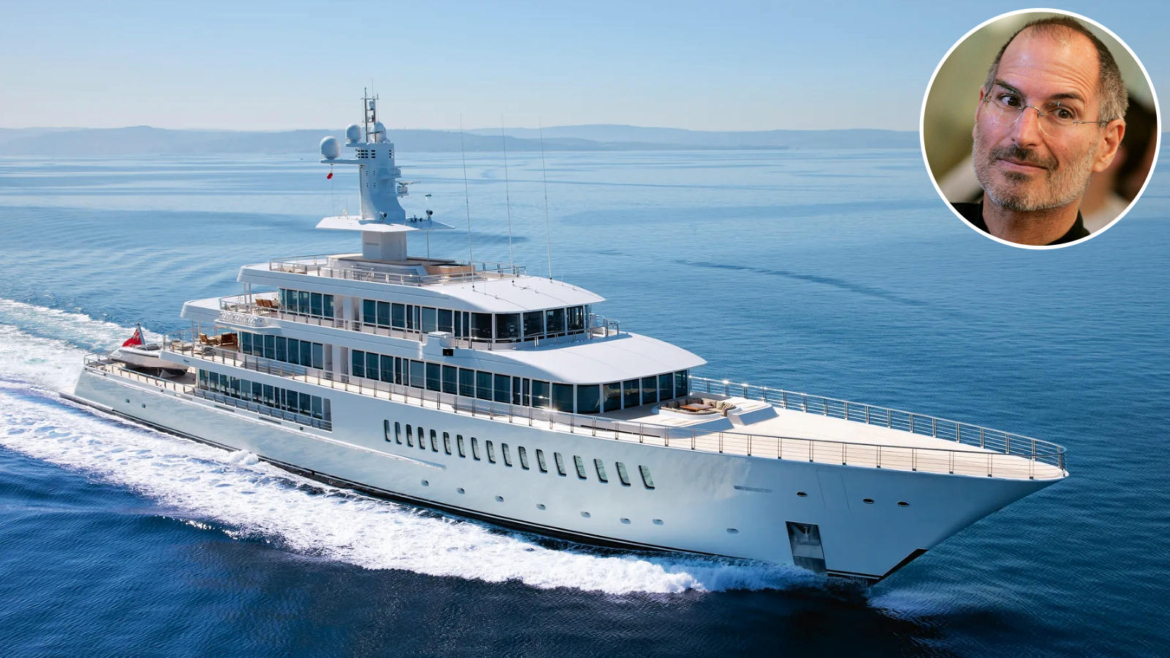Steve Jobs’ obsession with design is well known; after all, it was central to Apple’s success and his legacy as a visionary. His intense focus on design extended far beyond aesthetics. Jobs viewed design as a perfect amalgamation of form and function, focusing on simplicity. In fact, the Apple co-founder detested anything and everything that didn’t fancy his uncompromising design parameter. The perfect example is how Jobs hated the design of a multi-million superyacht owned by his best friend, Larry Ellison, so much that he decided to pen the ideal pleasure vessel.

The camaraderie between Steve Jobs and Larry Ellison was one of the most fascinating among tech industry icons. Spanning over two decades, their friendship was marked by mutual admiration. Jobs was also the designated photographer at Ellison’s fourth wedding.

Both shared a fierce determination to create groundbreaking products and an uncompromising approach to business. Jobs and Ellison were also known to influence each other’s business decisions and philosophies. In fact, the Oracle founder and CEO was one of the few people Jobs confided in, and they enjoyed each other’s company outside work settings.
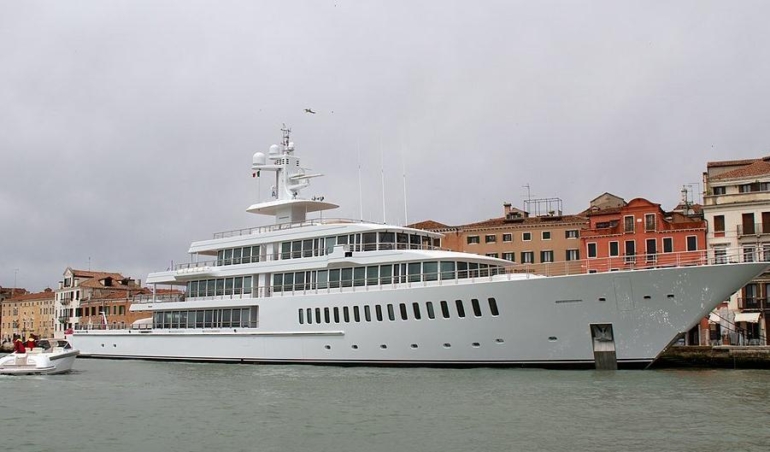
While Larry Ellison is known for his flamboyant personality and extravagant lifestyle, Jobs had a more Zen-like approach to life with a strong liking towards minimalism. This is also evident from Jobs’ design sense and his obsession with perfection, which Ellison often admired. In the Apple co-founder’s biography, Walter Isaacson writes about how Jobs hated the design of Ellison’s $160 million superyacht Musashi, which inspired him to design his own superyacht.
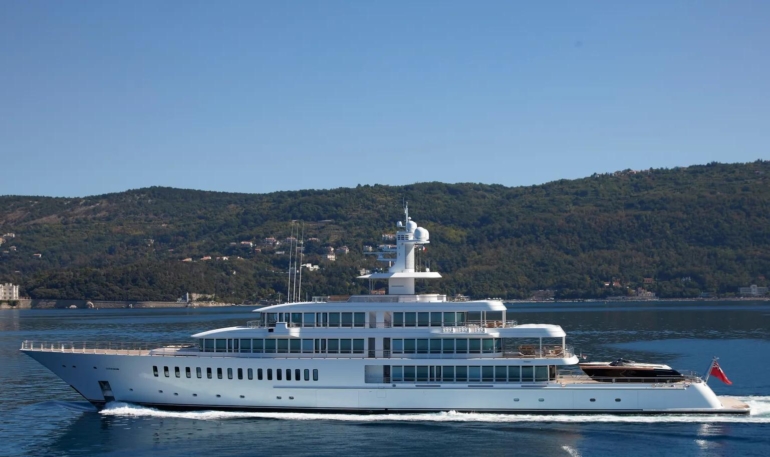
Ellison has owned several superyachts over the years, but the Feadship-built Musashi is the most expensive and extravagant vessel purchased by the billionaire. Named after one of the most legendary Samurais of all time, Miyamoto Musashi, the 288-foot pleasure vessel features a traditional yacht design influenced by the minimalistic Japanese design.
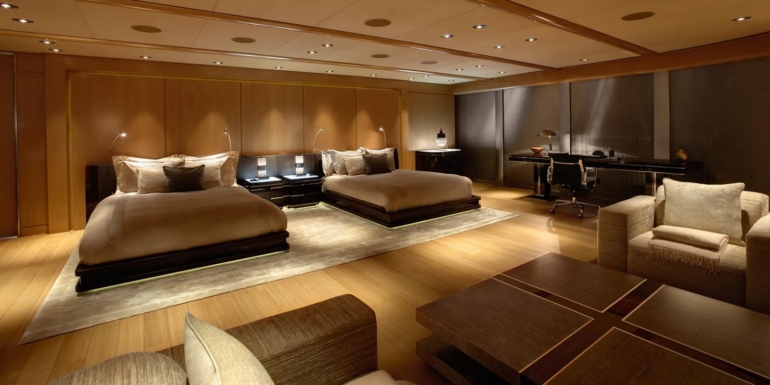
The vessel’s stunning exterior and interior designs were both penned by Sinot Yacht Architecture & Design in close collaboration with Feadship and De Voogt Naval Architects. However, the beautiful vessel did not adhere to Jobs’ design standards.

But it wasn’t just Ellison’s multi-million Musashi that irked Jobs. The tech mogul was unhappy with the designs of most yachts. In Jobs’ biography, Isaacson writes: “Before his liver transplant, he and his family used to rent a boat for vacations, traveling to Mexico, the South Pacific, or the Mediterranean. On many of these cruises, Jobs got bored or began to hate the design of the boat, so they would cut the trip short and fly to Kona Village.” This fueled his desire to create a superyacht of his own. Isaacson also mentions how he kept perfecting the vessel’s design he wanted to build someday.
In 2009, Jobs almost canceled the project when he got sick again. He thought that he wouldn’t be alive till the time the vessel was completed – something which eventually happened. However, he decided to continue as he enjoyed the process and thought he may “have a shot at being alive when it’s done.” In the biography, Isaacson also talks about the day Jobs the models and architectural drawings of the superyacht, which was under construction by Dutch custom yacht builders Feadship.
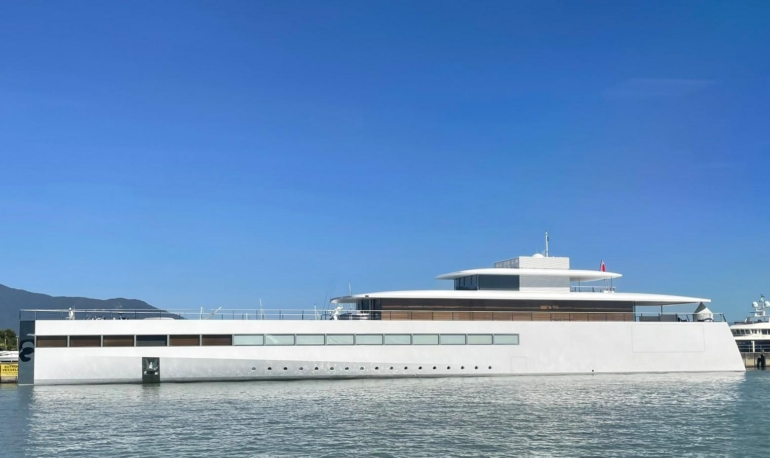
Named after the Roman goddess, Venus’ design reflects Steve Jobs’ penchant for minimalist aesthetics and meticulous attention to detail. The vessel is known for its sleek design, advanced technology, and distinctive use of glass and aluminum, contributing to its futuristic appearance.
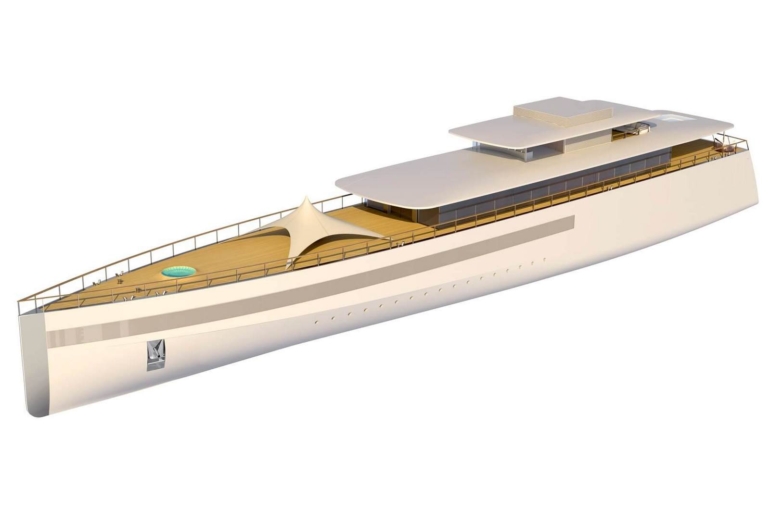
Designed by Jobs in collaboration with renowned French designer Philippe Starck, the 256-foot superyacht has clean lines, a streamlined profile, and an overall minimalist aesthetic that aligns with Jobs’ tastes.
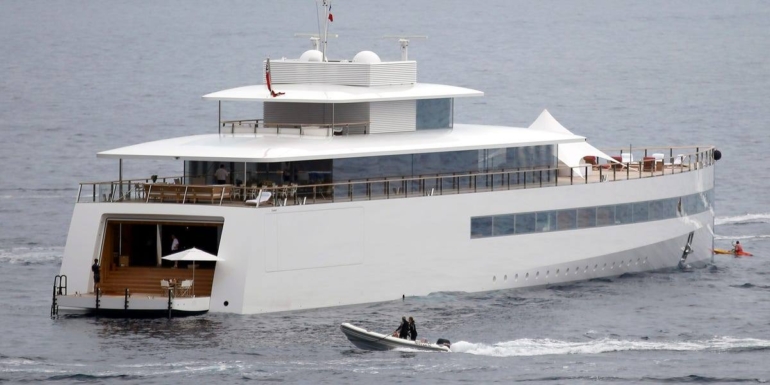
The yacht has an aluminum hull and superstructure, which not only help make her lightweight and robust but also give her a polished, futuristic look. The Apple co-founder wanted extensive glasswork throughout the yacht, similar to the large glass facades in Apple stores. Jobs brought in the chief engineer of the Apple stores to design a special glass that provided structural support.
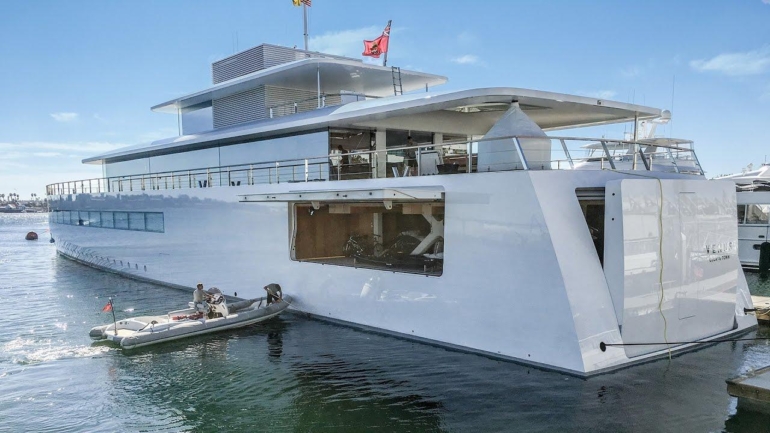
As a result, Venus features floor-to-ceiling windows along the main living areas, allowing for sweeping ocean views and ample natural light.
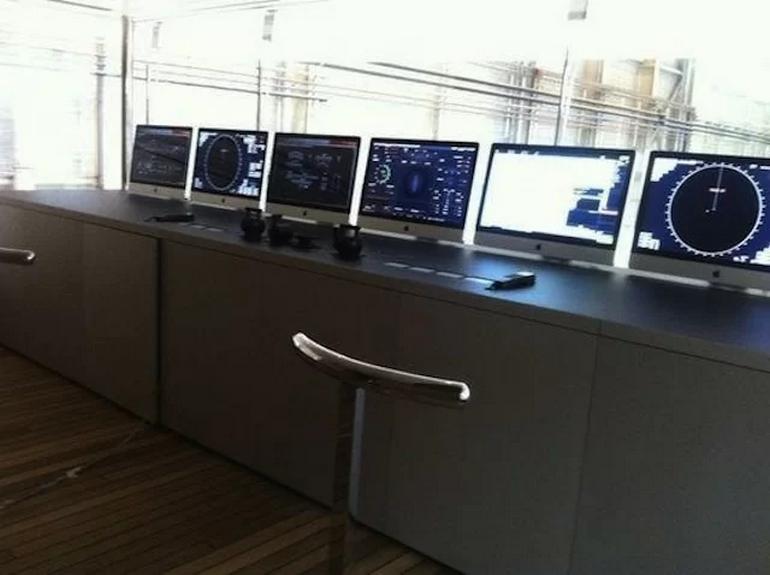
The bridge is one of the highlights of the stunning vessel. It is encased in a giant glass wall, creating a panoramic view for the captain and crew. Furthermore, it features a cutting-edge iMac-powered control system. A row of iMacs on the bridge controls most of the yacht’s operations.
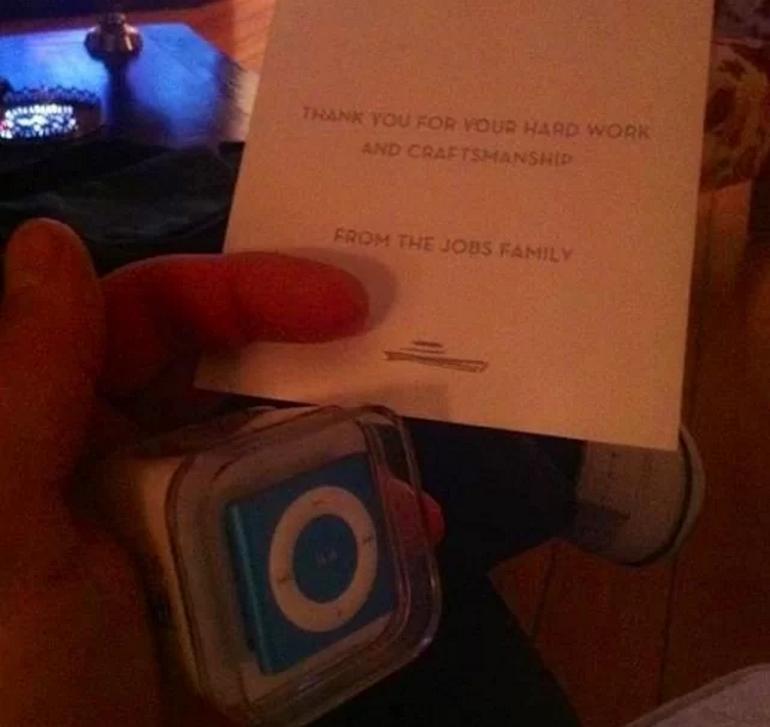
There is very little information on the vessel’s interior, but it is believed to complement the yacht’s minimalist exterior. Sadly, Jobs never got the opportunity to board the superyacht he spent years designing.
